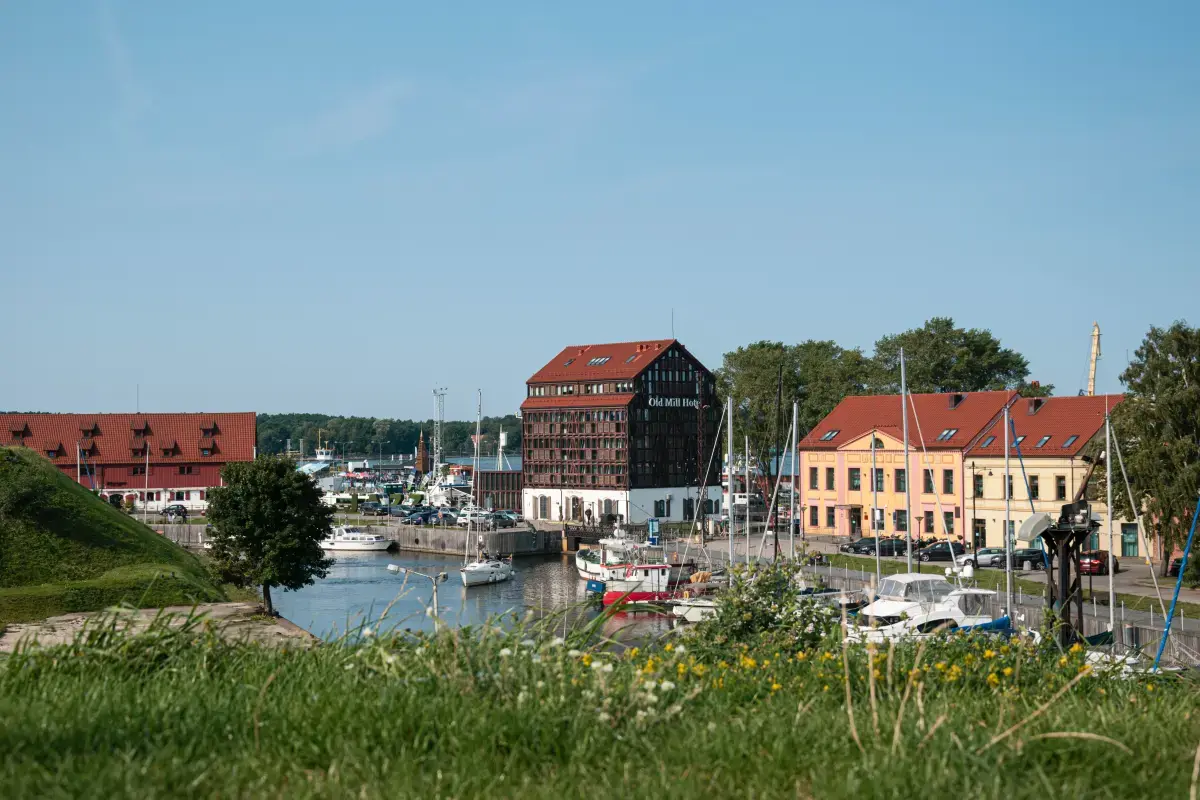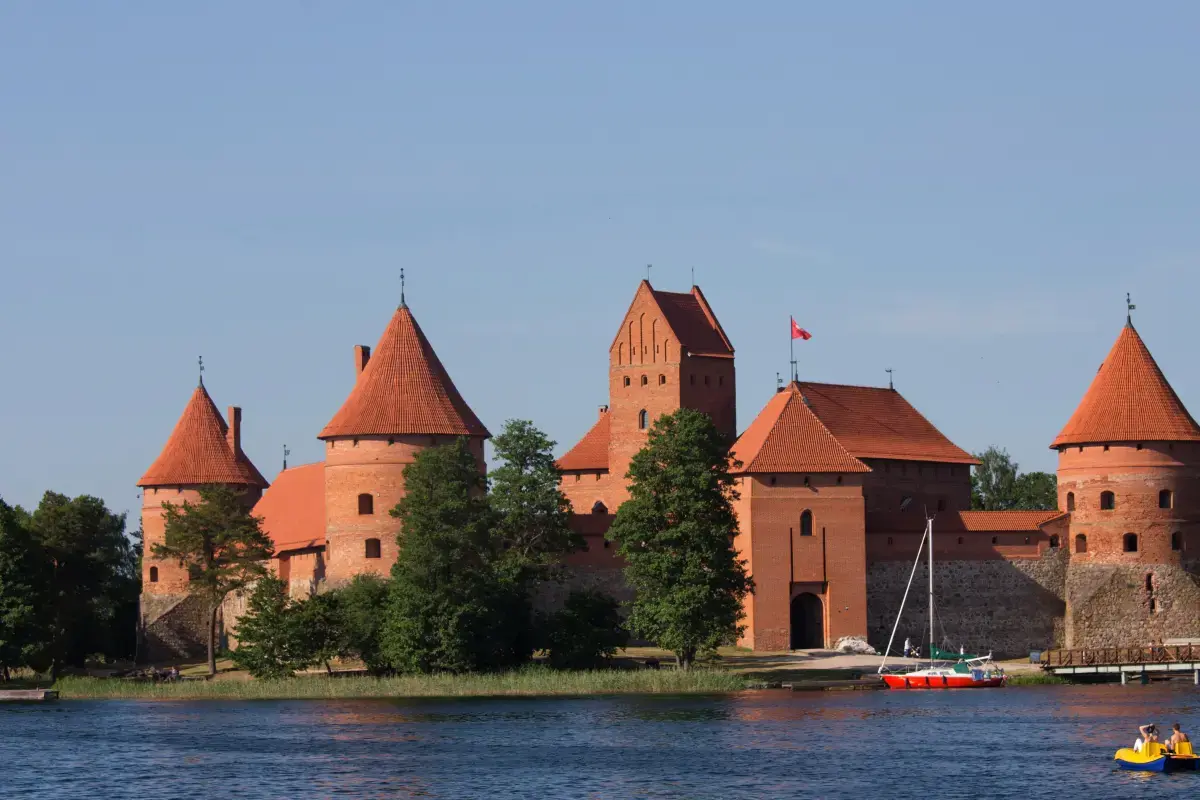- Anesthesiologist
- Obstetrician and Gynecologist
- Psychiatrists
- Surgeons
- General Internal Medicine
- Physicians
- Ophthalmologists
- Orthodontist
- Product Manager
- Artificial Intelligence & Machine Learning (AI/ML) Engineer
- Full-Stack Developer
- Cloud Architect
- DevOps Engineer
- Blockchain Engineer
- Software Architect
- Big Data Engineer
- Internet of Things (IoT) Solutions Architect
- Data Scientist
- Cyber Security Architect

Job Seeking in Lithuania in 2025
The Ultimate Guide to Finding a Job in Lithuania in 2025?
The job market in Lithuania is considered to be one of the most dynamic in Europe and has been growing steadily in recent years. The country’s central location between Nordic states, as well as its fast-growing economy, and low taxes have attracted a number of international companies. This has led to a number of highly skilled jobs becoming available with attractive salaries and benefits. There are currently over 800 multinational companies operating in Lithuania, making it an attractive place for expats to relocate for work opportunities. Many foreign employees come from West European countries such as UK, Germany and the Netherlands, while a growing number also arrive from other Eastern European countries. There are also many opportunities available within sectors such as IT, finance/banking, tourism/hospitality and manufacturing. The prospects for landing a highly paid skilled job in Lithuania are good if you have qualifications relevant to the sectors mentioned above or possess knowledge necessary for doing business with global markets. The Lithuanian government is extremely keen on attracting foreign investments through offering tax benefits and providing training programs to help foster local talent which increases the possibility of finding a fulfilling job that pays well. Furthermore with technological advances happening so rapidly – specifically those related to blockchain – there are more skilled jobs than ever before becoming available for capable candidates which offer the potential for earning impressive salaries

Average Salary in Lithuania in 2025?
The average salary in Lithuania is around €1,327 per month, which is the equivalent of €15,920 per year. This comparison is based on data from the Eurostat Labor Force Survey. The minimum wage rate in Lithuania is €545 per month and the average Gross Domestic Product (GDP) per capita of this small Baltic country is €19,164. Most jobs in Lithuania use a tiered system when paying salaries to their employees based on experience and/or qualifications. Thus, a person with many years of work experience or with higher educational qualifications can expect to receive a higher salary compared to someone who does not have this type of background or experience. The salaries for most job positions range from around €400 - 1500 depending on the industry and job role. In general, working conditions in Lithuania are generally good compared to other countries in Europe and other parts of the world. Employers must comply with labor laws, regulations, and collective bargaining agreement set by government labor authorities as related to employee rights and working conditions including fair wages, hours of work regulation vacation rights etcetera.. As well as providing basic health care for employees, some companies will also provide additional benefits such as tuition assistance for childrens education or even special discounts at certain stores or culture activities. In terms of safety protocols at work environment; employers should adhere to safety regulations regarding their premises through regular maintenance checks by qualified personnel; they should ensure that all staff are properly trained when it comes operating hazardous machines; wearing proper personal protective equipment such as face masks / respirators etcetera.. Finally employers should also pay attention monitoring their staffs mental health issues by providing sufficient resources regarding occupational stress management etcetera..

Job Market in Lithuania in 2025?
Lithuania has seen a steady increase in the demand for skilled professionals in recent years and the salaries here are among some of the highest salaries in Europe. The following is a list of some of the most in-demand and highly paid jobs in Lithuania: 1. Financial professionals: Lithuania has seen a large influx of financial experts as its economy strengthens, creating demand for experienced professionals with knowledge and experience in financial management, accounting, investments, and banking. Salaries within this field often reach €40 000 - €60 000 per year. 2. Technology professionals: With fast-moving changes taking place across the technology industry, Lithuania is one of Europe’s top sources for tech talent. Demand especially ries within IT security, software engineering (especially cloud computing), data analysis and machine learning development. Salaries typically range from €45 000 to €70 000 depending on skillset and experience level. 3. Hospitality professionals: Hospitality staff are also in high demand due to an increasing number of international tourists travelling through Lithuania every year. Hotels are looking for well trained employees with expertise in both customer service and hospitality operations management which can earn them between €20 000 to €28 000 annually depending on the company size and region they work from . 4. Legal experts: High demand has been seen across many sectors for those who specialize in law such as lawyers, paralegals or legal advisors who can provide expert consultation for small to mid-size businesses or international organizations operating locally as well as have specialized skills with contracts/agreements and need help negotiating or mediating legal matters amongst different parties involved . Salaries depend on qualifications but generally range from €20 000 -€50 000+ per year plus bonuses based on successful outcomes secured by clients .

Higher Education in Lithuania in 2025?
Lithuania offers many excellent further education facilities to help jobseekers upskill and land top jobs. 1. Universities: Lithuanian universities offer many different degree programs, ranging from law and engineering to business and IT. These universities also have a wide range of international programs, enabling students to take part in exchange programs or specialize in foreign languages or areas. Universities like Mykolas Romeris University (MRU) in Vilnius offer internships and other forms of career mentoring services to provide graduates with a leg-up in the Lithuanian job market. 2. Professional Certifications: Lithuania has numerous organizations that offer professional certifications in fields such as accounting, marketing, security, IT management and more. These certifications give organizations peace of mind when hiring employees, demonstrating one’s qualifications for the role they are applying for. Organizations such as APCERT (Association of Professional Certification Authorities) offer courses on subjects like computer science engineering certification or software development certification that can boost your chances of landing top jobs in Lithuania 3. Business Schools: Business schools are a great option for those wishing to obtain additional skills and knowledge before applying for management-level positions within companies located in Lithuania. Vilnius University runs a highly accredited management program with cutting-edge curriculum topics including entrepreneurship, operations & production management, financial statement analysis & taxation issues and international business management among others. 4. Online Learning Platforms: If one is not interested or able to enroll full-time study courses at Lithuanian universities or business schools but wish to systematically gain new skills then online learning platforms can be an ideal choice too! Platforms like Coursera or edX provide thousands of courses across different technical areas (such as data analysis) as well as language courses that are specifically tailored towards landing specific types of jobs in Lithuania without a major investment into lengthy conventional studies at university level!

How to Find a Job in Lithuania in 2025?
1. Networking: Making connections is one of the most effective approaches in finding a job, especially if you are new to a city or country. There are various ways to do this; some examples include attending job fairs, joining professional associations, and reaching out to contacts made online through websites such as LinkedIn and Meetup. 2. Research: Researching the job market is crucial for learning what type of opportunities exist in any given location. It’s important to research the different industries in Lithuania such as IT, pharmaceuticals, finance and business services, agriculture and tourism, among others, as well as examine trends in employment growth or decline for each respective industry. 3. Employment Agencies: If you need additional help with job search assistance or advice on resume preparation and other activities related to successfully finding a job then consider signing up with an employment agency – these companies offer services like helping you create an effective resume that stands out from the rest of the competition as well as advice on interviewing skills and other ways of improving overall candidacy chances. Additionally they also have direct contact with employers so they can also help you land an interview quickly! 4. Local Job Sites & Portals: Another great way to find work in Lithuania is by searching through the numerous local websites that list available positions suited for foreign professionals who want to work in Lithuania (and similar countries). By using search parameters such as industry type or location you should be able to easily narrow down results based on your criteria’s, making it easier for you to apply for positions quickly! 5. Online Resources/Blogs: There are a number of online resources dedicated specifically towards migrants who wish to work in Lithuania; these blogs offer invaluable insights from firsthand experiences ranging from applying for jobs abroad through agencies & embassies all the way up till securing visas & work permits later down the line! Additionally by keeping track these resources one can stay ahead up-to-date regarding any changes that may arise within legislation related migration too which might be beneficial for people planing on staying longer or seeking permanent residence status eventually too!

How to begin job hunting in Lithuania in 2025?
Job hunting, job seeking, or job searching is the process of looking for new employment.
This can be due to various reasons. Such as recently being made redundant resulting in unemployment. Consequently the need for finding a new job is enhanced due to the loss of income. Job hunting when unemployed is typically the most stressful, but it is important to remember what your career goals are when searching for a new job in Lithuania. Jumping into the first job offered in the wrong industry, location, career path or seniority will eventually lead to unhappiness and a new job search in the near future.
Job seeking can also occur when an employee feels they need a new challenge or pay rise. When a job seeker feels there is no opportunity for growth within their current company, this is one of the largest drivers for initiating a job search in Lithuania
It is common for companies to try and counter offer employees when they hand their notice in, after a successful external job search. Statistics show that this is usually ineffective and too late in retaining the majority of job seekers in staying.

What is important to Lithuanian job seekers when looking for a new job and company in Lithuania?
A recent survey has shown that there are several drivers important for job hunters, when searching for new jobs in Lithuania.
- Salary & Company benefits. Job seekers who feel valued through their pay, operate more efficiently. Employers who pay fair salaries find their staff engaged and motivated to drive the business forward
- Company Culture. How the company operates, looks after and cares for its employees is incredibly important to ensuring employees enjoy going to work. Finding a company that has a mission, core values and purpose that align with job seekers is especially important with Millennials & the younger workforce generation
- Opportunity for Growth. Job hunters who see a defined career progression path within a business with an appropriate pay package do not need to leave to enhance their skills and salary
- Work flexibility. This can range from hours of the day to location. The rise in remote working and working from home are becoming big incentives for job hunters looking for work life balance
- Seniority. As job seekers climb the corporate ladder, with that comes more responsibility and greater pay. Internal promotions are harder to come by for job hunters than external job opportunities
- Job security, especially at certain points of your career can be very important to job hunters. The greater the job security a company can offer, the greater stability and piece of mind this will offer a job hunter. Less stress equals more productivity

Top Tips to finding a job in Lithuania in 2025
Understand your career goals and your value
- What do you want to do and why?
- What is your strategy and career roadmap to lead you to a happy retirement?
- Do you need to reskill your personal development to achieve this?
- Night school or new educational course?
- Can you afford to take a salary reduction in the short term to gain in the long run?
- What is your salary expectation?
- Long game vs short game?
- Many positions start with low salaries but the potential to grow into large salaries comes with experience.
Research your career opportunities
- Speak to mentors or people working in positions you aspire for
- Understand salaries and work environment of prospective career
- Research future trends in employement. Is this something that will be around in the future? The Future of Work is changing how we work and many jobs may not exist in the future. Is your potential career path future-proof?
Write, or update your CV/Resume
- Ensure this reflects you in best manner
- Has key words that are relevant to your experience and skills
- Work with a professional if this is something you struggle with
- Get feedback from hiring managers and recruiters on your CV
- Ensure your reputation is good
- Check social media for any bloopers
- Volunteer and complete community work
Update your profile of job boards in Lithuania that meet your work requirements
- Ensure your job board profile is up to date
- Apply for jobs that match your requirements and skills
- Applying for jobs that aren't a great match can result in reputational damage with hiring managers and recruiters
- Include a great cover letter summarizing your best attributes and why you are suitable for the job
Put your best foot forward for job interviews and ace it!
- Do your research on the hiring manager and company
- Prepare for interview tests, whiteboard scenarios or technical questions
- Don’t be late for the interview
- Dress professionally
- Maintain eye contact
- Answer with confidence and ask questions
- Negotiate confidently your salary expectations
Follow up post interview
- Always follow up after an interview to either say thank you for your time or chase if you haven't received feedback
Select reputable referees
- Ensure job references are relevant and trusted from respected companies in Lithuania
Get hired!
- Accept the job offer if the company meets your values and culture expectations
- Accept the job if the salary meets your expectations
- Accept the job if it meets your career path progression
Hand in your notice with your current employer
- Remain professional and they may be your future referee or even employer again
- Reputation is everything, dont damage yours when leaving a company
Happy job hunting and best of luck landing that dream job in Lithuania

Search & Find Jobs in Lithuania
Need to find a job near me in Lithuania? If you have followed our job seeker guide to finding jobs in Lithuania you have a great chance of landing that dream job. Best of luck in your job search!
Jobs
What are the Best job boards in Lithuania
Jobseekers searching for jobs in Lithuania find the below job portals in in Lithuania as the best job websites for finding employment in in Lithuania
Find best local jobs in Lithuania in 2025?
Need to find a job near me in Lithuania. Check out local jobs near you.
Additional Information to Help with Job Hunting in Lithuania
We recommend the below websites to find good information for businesses to advertise their jobs online in Lithuania.
We have combined the full list of information available online for the best and top rated job websites in Lithuania so business can gain information and resources for hiring expert talent in Lithuania.
Featured Locations
Frequently Asked Questions
- Construction
- Business Analysis
- Web & App Development
- Animation
- Nursing
- Teaching
- Engineering
- Marketing
- Plumbing
- Carpentry
- Software Engineer
- Data Analyst
- Hospitality Staff
- Builders
- Full-time
- Part-time
- Permanent
- Freelance
- Gig Jobs
- Contract
- Weekend work
- Out of Hours
- Night shift
- Casual
- Temporary
- Remote
- Work From Home
- Work From Anywhere
- Telecommuting
- Flexible
See here for more Help & Support questions



